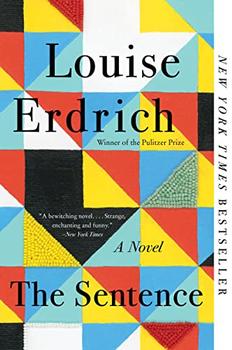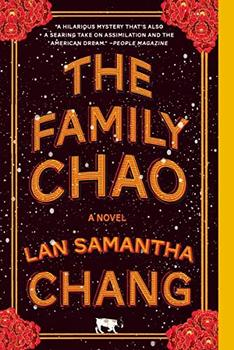Summary | Excerpt | Reviews | Beyond the book | Read-Alikes | Genres & Themes | Author Bio

"Excel is not a child. The man behind the ticket counter says he looks like one." So begins the first chapter of Lysley Tenorio's The Son of Good Fortune, in which 19-year-old Excel is asked to provide legal identification at a Greyhound station, but has none. When the man suggests a license, Excel replies, "If I had a driver's license, why would I take a bus?" He risks offering an extra five dollars for the ticket without ID, and the man grudgingly accepts, but not before remarking, "Kid, if you're going to bribe someone, especially at five a.m., aim higher." Taking the ticket, Excel says, "Thanks, but please don't call me kid." This early scene shows Tenorio's main character both in his element and out of it. As a TNT (short for "tago ng tago," meaning "hiding and hiding"), Excel has grown up in fear of being identified as undocumented, but he is protective enough of his own worth to politely demand respect.
Along with his lack of citizenship, Excel's relationship with his mother, Maxima, has closely informed his disposition and decisions. Maxima gave birth to him on a plane traveling from the Philippines to the United States, rendering him neither exactly Filipino nor American. A former B-film action star, Maxima makes a living scamming men she meets online, who seem to generally be white Americans interested in dating or marrying Filipina women. Excel, whose options for stable employment are as limited as his mother's but who is just as independent and stubborn as Maxima, is at the story's opening returning from a Southern California desert settlement known as Hello City where he was living with his girlfriend, Sab — a bold experiment in off-the-grid existence that ended in disaster.
As the narrative moves forward, it sifts through both main characters' histories, uncovering Excel's experiences in Hello City and Maxima's reasons for leaving the Philippines. In the present moment, the plot is driven forward by Excel's urgent need for money, which leads him to beg for his old job back at The Pie Who Loved Me, a spy-themed pizza parlor owned by a former strip club bouncer named Gunter whom Excel insulted upon quitting in an ill-advised fit of bravado.
While colorful details like the above may seem to suggest that Tenorio's novel is primarily meant to entertain (and it is a smooth, pleasurable read) they also paint a sobering picture of working-class existence in the U.S. The trials Excel endures at the pizza parlor, including dressing up as "Sloth the Sleuth" in a show of good faith to Gunter, only to pass out from dehydration inside the sweltering costume and be denied pay as a result, are funny on the surface but also representative of the exploitation endured by many undocumented and otherwise vulnerable workers in a capitalist society. Excel's job and Maxima's online schemes are brimming with an absurdity that contradicts the romance of the American dream, showing a reality where the only viable options beyond superhuman achievement are illegal or questionable according to social mores.
This reality has been acknowledged under a romantic spotlight in American crime dramas such as the TV series Breaking Bad, which follows a middle-aged science teacher who begins dealing methamphetamine in a desperate bid to pay for his cancer treatments. However, society's most marginalized, including undocumented immigrants more predisposed to desperate circumstances, are not often depicted with such a charming combination of relatability and guile when undertaking understandable criminal actions. In The Son of Good Fortune, Maxima's cons are not significantly romanticized, but neither is the reader denied the delight of watching her and her son building step by step towards a big joint scam in which they try to take advantage of a wealthy man's condescending preconceptions about their ethnicity.
Tenorio does not give the impression that Excel and Maxima are neatly justified in their actions, but rather that precise questions of right and wrong must come second to the autonomy they have learned to exercise within a broken world, a legacy passed from mother to son. The novel shows their willingness to make questionable choices that they nevertheless stand behind, stressing that moral purity is a luxury in a system that puts a price on all aspects of humanity. At the same time, it challenges the pervasive popular narrative that encourages racialized immigrants to always "aim higher" and to display exceptional, self-sacrificing behavior. Through sensitive and skillful portrayal of its characters, The Son of Good Fortune puts a joyful spin on their grim circumstances, celebrating their ability to know their value in a society that attempts to erase them.
![]() This review was originally published in The BookBrowse Review in August 2020, and has been updated for the
May 2021 edition.
Click here to go to this issue.
This review was originally published in The BookBrowse Review in August 2020, and has been updated for the
May 2021 edition.
Click here to go to this issue.

If you liked The Son of Good Fortune, try these:

by Louise Erdrich
Published 2022
In this stunning and timely novel, Pulitzer Prize and National Book Award–winning author Louise Erdrich creates a wickedly funny ghost story, a tale of passion, of a complex marriage, and of a woman's relentless errors.

by Lan Samantha Chang
Published 2022
An acclaimed storyteller returns with "a gorgeous and gripping literary mystery" that explores "family, betrayal, passion, race, culture and the American Dream" (Jean Kwok).
Your guide toexceptional books
BookBrowse seeks out and recommends the best in contemporary fiction and nonfiction—books that not only engage and entertain but also deepen our understanding of ourselves and the world around us.